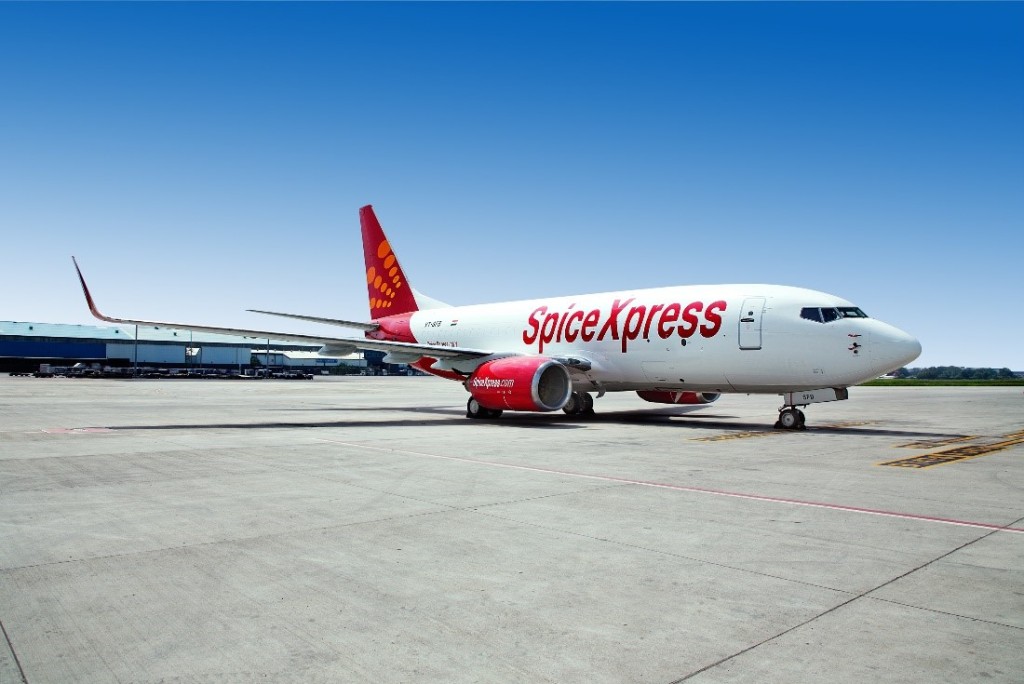Air cargo momentum grows in India’s State of Tamil Nadu
06 / 03 / 2024

Image source: SpiceXpress
India’s southern state of Tamil Nadu is rapidly expanding air cargo infrastructure and throughput handling.
The state hosts India’s second-largest air cargo capacity with a total share of 28.3%, according to national government statistics.
The state also has the highest number of container freight stations (CFSs) and Warehouse Development and Regulatory Authority (WDRA)-registered warehouses.
Additionally, Tamil Nadu boasts an extensive network of airports, both international and domestic, that cater to the burgeoning demands of air cargo transportation.
Chennai International Airport, the state’s primary gateway, is a major hub for airfreight movements.
Airports in other cities, such as Coimbatore, Madurai, and Trichy, complement Chennai’s role by facilitating regional air cargo operations and improving cargo flow accessibility across the state.
Tamil Nadu has become a gateway for exporting a diverse range of Indian-made goods, including textiles, automotive components, pharmaceuticals, and electronics.
The state imports high-value goods to meet domestic demand and to support local industries.
As India’s second-largest economy, Tamil Nadu plays a crucial role in the country’s air cargo sector.
Major airlines, such as Air India, IndiGo, SpiceJet and cargo carriers, including Blue Dart Aviation, transport goods into and out of the state, ranging from perishables to industrial equipment.
Dedicated cargo terminals and warehouses are operated by private entities and the Airports Authority of India.
Investing in growth
Recognising the need for robust infrastructure to support its growing trade volume, the state government, together with private companies, launched several ambitious projects to expand and modernise air cargo facilities.
At the City of Chennai Airport, there are plans to construct a new integrated cargo terminal with a capacity of 300,000 tonnes per annum.
While the project is under review, due to legal issues, the Tamil Nadu government is actively seeking solutions to expedite the project, which aims to address Chennai’s existing cargo handling limitations and boost export competitiveness.
Away from the state’s main hub, Madurai Airport is building a new dedicated cargo terminal with a capacity of 20,000 tonnes per annum. Construction is underway and expected to be completed by the end of the year.
The project aims to serve the growing industrial base in southern Tamil Nadu and facilitate perishable cargo exports.
Tuticorin Airport is establishing a dedicated cargo terminal with a capacity of 50,000 tonnes per annum.
At the moment, the project is in the planning stage, awaiting government approvals, and will encourage exports from southern Tamil Nadu, particularly marine products and textiles.
At Salem Airport there is a feasibility study underway for a dedicated cargo terminal. If it gains approval, the development has the potential to connect western Tamil Nadu’s industrial cluster to global markets.
There is also a proposal to develop a new airport on a greenfield site near the city of Hosur, designed to cater for the region’s rapidly expanding industrial belt and facilitate automobile and electronic air cargo demand.
And there are plans to establish Multimodal Logistics Parks (MLPs) across key locations in the state to integrate air, sea, and road transportation.
Several MLPs are under development or in the planning stage, focusing on strategic regions like Chennai, Madurai, Coimbatore and Tuticorin.
They are aimed at enhancing connectivity, promoting efficient cargo movement and reducing logistics costs.
Lastly, there is a plan to develop an air cargo hub within the Tidel Park industrial zone, located near the fast-growing city of Chennai.
The hub is in the planning stage and aims to attract logistics and MRO companies.
Innovating in air cargo
As well as physical infrastructure, the state also has a focus on technology innovation. This has prompted the emergence of several e-cargo platforms and paperless customs clearance processes.
Ongoing initiatives in this domain are now underway at major airports – all with the aim of expediting cargo movement and reducing dwell times.
Several stakeholders are involved. The Airports Authority of India (AAI) is responsible for managing and modernising major airports in the state, including implementing e-cargo platforms.
India’s customs department is helping streamline clearance processes, often partnering with AAI and private service providers for technology solutions.
And logistics service providers, technology developers and IT companies are all contributing to implementing and operating these technologies.
However, challenges do impede air cargo’s growth: securing investments; streamlining approvals; and attracting skilled manpower.
Infrastructure constraints include limited capacity at airports and inadequate warehousing facilities. These lead to congestion and delays in cargo handling.
Regulatory complexities, bureaucratic procedures, and inconsistent policies increase transaction costs and reduce competitiveness.
The industry also grapples with security concerns, fluctuating fuel prices, and environmental sustainability.
New initiatives now aim to streamline regulatory processes, improve connectivity, and promote multimodal transportation are likely to foster a more conducive business environment for the air cargo industry.
The growth of e-commerce, rising demand for fresh perishable goods, and increasing trade liberalisation offer the industry new growth opportunities.
With its strategic location, robust infrastructure, and proactive initiatives, the state is well-positioned to capitalise on the evolving trade landscape.
However, it is imperative to address the big challenges and inefficiencies to unlock the full potential of the air cargo industry and ensure sustained growth and competitiveness in the long run.













